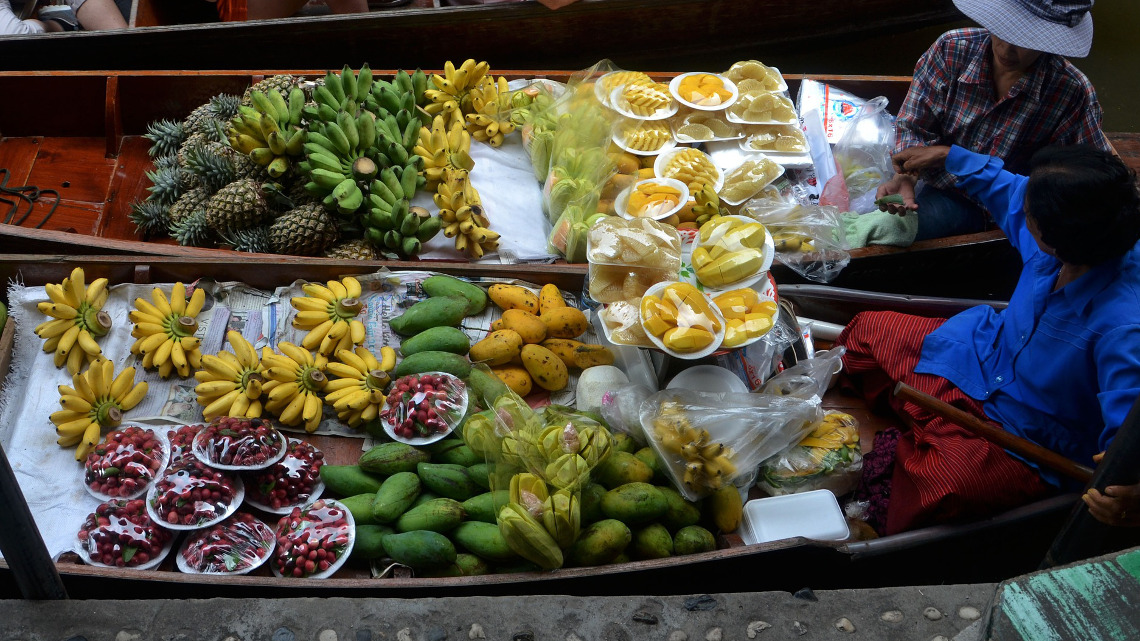Restricting GMOs affects global trading
Scientific advisors and a WTO-committee are urging European legislators to revise their verdict regarding GMOs to reflect current scientific knowledge and protect EU trade relations.

In July of this year, the Court of Justice of the European Union (ECJ) ruled that organisms obtained by using new techniques of directed mutagenesis, including those known as ‘gene editing techniques’ such as CRISPR-Cas, are genetically modified organisms (GMOs). As GMOs, they are subject to the corresponding legislation, the so-called GMO-Directive. This directive severely regulates and restricts these organisms from the European market by imposing strict and extensive testing, thereby significantly increasing their developing time and costs.
The decision of the ECJ was met by harsh criticism from the scientific community and biotech industry. The German Bioeconomy Council, an independent advisory body of the German government, even called for new GMO laws. Now, the Group of Chief Scientific Advisors of the European Commission’s Scientific Advice Mechanism (SAM) has also published a statement providing “A Scientific Perspective on the Regulatory Status of Products Derived from Gene Editing and the Implications for the GMO Directive”.
SAM urges for revision of GMO Directive
SAM was established in October of 2015 with the goal to support the Commission with high quality, timely and independent scientific advice for its policy-making activities. Its Group of Chief Scientific Advisors comprises seven independent scientists. In their statement, the advisors conclude that the GMO Directive should be revised to reflect the current state of scientific knowledge. Carlos Moedas, EU-Commissioner for Research, Science and Innovation, welcomed SAM’s statement: “Gene-editing is a critical technology with an enormous potential to improve human health and preserve the environment. The statement by the Chief Scientific Advisors also provides a valuable input into our reflections on future proofing regulation so that our laws can keep up with labs.” Vytenis Andriukaitis, Commissioner for Health and Food Safety, added: “The EU is a champion of the highest standards of food safety. To make the best out of new developments and innovations, I encourage a broad reflection and discussion on how we, as a society, want to go forward with such issues as gene editing.”
The statement by SAM offers a point-by-point reply to the reasons given by the ECJ for their ruling in July. For instance, they point out that although random mutagenesis, which has been used extensively in plant breeding since the 1960s, alters an organism’s genome at multiple positions in a non-targeted way by treatment with e.g. a chemical mutagen or irradiation, these methods have been and can still be used without restrictions. In contrast, the new techniques resulting in directed mutagenesis that alter a DNA sequence precisely at one or more targeted positions in the genome are heavily restricted under the GMO-Directive. Therefore, SAM concludes, new scientific knowledge and recent technical developments have made the GMO-Directive no longer fit for purpose. Moreover, the GMO-Directive gives rise to more general problems, in particular with regard to the definition of GMOs in the context of naturally occurring mutations, safety considerations, as well as detection and identification.
Considering the end product rather than the technique
Furthermore, the SAM statement continues, the changes introduced by random mutagenesis are usually more drastic than those resulting from targeted gene editing techniques, and include not only numerous point mutations, but also deletions and major rearrangements of genome fragments. The resulting mutant organisms (i.e. plants) require lengthy screening of the organisms’ characteristics. Despite this, the ultimately selected end products are likely to carry additional mutations beyond the ones resulting in the desired trait, each of which can be considered to be an ‘unintended effect’. Since unintended effects will occur less frequently in targeted gene edited products, these are potentially safer than the products of random mutagenesis. Therefore the authors argue that the regulatory framework for GMOs should put more emphasis on the features of the end product, rather than on the production technique: “The safety of a product is determined by its characteristics and not by the way it was generated.”
Regulations should be internationally harmonized
According to SAM, the ruling of the ECJ will have far-reaching consequences for European citizens – consumers as well as farmers – and will impact international trade and cooperation with developing countries. Following this line of argument the World Trade Organization (WTO) also recently released a statement on agricultural applications of precision biotechnology. The WTO states that precision biotechnology techniques such as targeted genome editing tools are essential for agricultural innovations. Given the growing world population as well as climate change, such innovations are urgently needed. A primary objective therefore should be to coordinate efforts to ensure that the respective regulatory approaches are scientifically based and internationally harmonized.
If in turn domestic regulatory approaches for products derived from precision biotechnology differ, it will cause not only international asynchronicity in approvals, but also an asymmetry in regulatory approaches and create potential trade issues that could impede innovation. Thus, the WTO urges the individual governments to avoid arbitrary and unjustifiable distinctions between products derived from precision biotechnology and similar products obtained through other production methods. According to the WTO, public communication efforts will build trust in updated regulatory frameworks and improve the acceptability of future agricultural innovations.
In summary, the WTO as well as SAM urge European legislators to give the final product priority over the applied technique to generate it – if the final product is classified as ‘safe’, the respective technique to achieve it should be of less concern. Moreover, both organisations call for enhanced and improved communication with the public and promote a broad dialogue with stakeholders as well as the public to resolve lingering fears and misunderstandings.
jmr


